The Liminal (formally titled Gift) series concept film has been posted for viewing and follows the story of a young-woman, Aly (played onscreen by Bela Larby), who volunteers for a pharmaceutical drug trial that gives her the ability to return to life every time she dies.
The concept film is written and created by Maxine Clement, directed by Artem Mykhailetskyi, produced by Sean Young and presented by Electronic Earth (hey, that’s us!) in association with Golden Elk Productions – we sat down for a roundtable discussion with the trio to include here with the films release:
Electronic Earth (E2):
Ok so, The Liminal (formally titled, Gift) was created by you, Maxine – can you tell us a little about where the concept came from and your process in developing it a little bit?
Maxine Clement (Maxine):
I was definitely inspired a lot by the show Orphan Black, which was the first big inspiration for the concept. It was such a down to earth, realistic representation of a sci-fi concept and I loved how human it was at its core. I wanted to make my own version of the concept and eventually I decided that it would be similar in it’s premise (a regular average Joe stumbles upon a nation wide sci-fi conspiracy) but instead that it would be about immortal people. I think I settled on immortals because I had written a feature before I explored this TV concept that was about an alien being who had lived on Earth for a long time and was essentially immortal, so I was familiar with the idea, but the feature that I wrote before didn’t necessarily explore that aspect of their conflict entirely.
Another thing, was that I loved the idea of having multiple immortal people struggling among a population that had no idea of their existence. It had a lot of opportunity for not just external conflict but internal conflict too. In terms of developing the protagonist (Aly), I did what I always do – I took a conflict that I already had in real life and that I was struggling with and I inserted it into the protagonist conflict.
E2:
A lot of well thought and fleshed-out characters in any medium have been developed by creators in a borrowing from real life fashion. You mentioned conflict that already existed in your own life that you were struggling with. If you’re comfortable sharing, would you elaborate a little on those struggles?
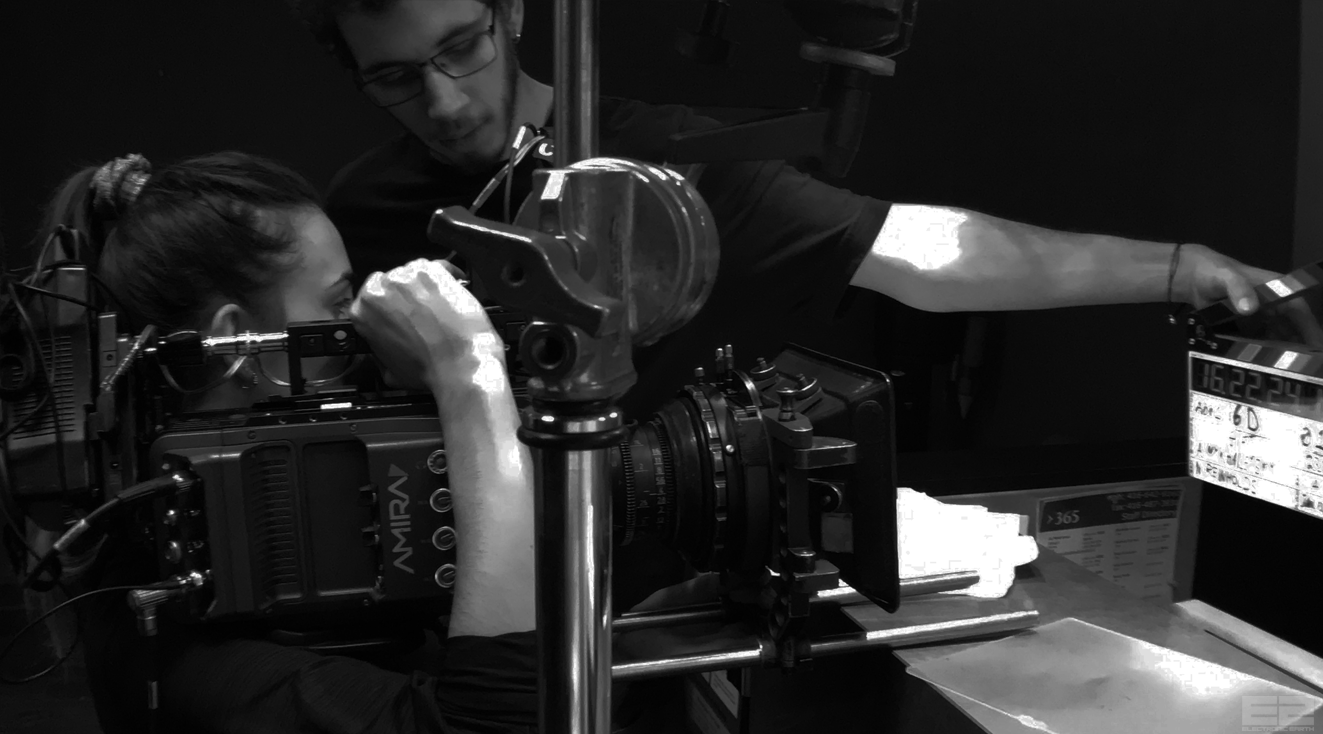
Maxine:
Yeah, Aly’s conflict was specifically meant to mirror my own. I think I had the idea for the concept when I was first beginning to come out and begin my transition – I think I was really borrowing from the mentality that I had when I was in the closet. She (Aly) unexpectedly obtains the power of immortality and internally she’s conflicted about it because she views herself as a freak. Part of her back story is that she had been disowned by her ultra religious family before she even acquires these powers, so she knows that not only does she internally feel like a monster, but that society and her own family will think she’s some sort of deviant. She’s just like me in this way before I came out because she lacks the guidance of a mentor figure showing her that she can use these powers for good or that there are good representations of people out there with these powers. Like, it wasn’t until Lana and Lilly Wachowski’s show Sense8that I actually saw decent representation of a trans character and I realized that it wasn’t something to be ashamed of.
E2:
So following what you’re saying then, the manifestation of this power within Aly (starting her new journey in the story) is representative of this personal time in your own life then?
Maxine:
Yes 100%. Aly’s internal conflict is definitely representative of my mentality before and at the time. Her arc would also mirror a lot about how I came to terms with my identity but her external conflict with her abusive, religious, unaccepting family is not representative of my own conflicts. I had to add that in order to make her conflict more extreme for the sake of the story.
E2:
Often, such personal stories are hard for individuals to share with their closest friends and family, did you feel any internal struggle attaching such personal history to a story being told that would be, or will be, shared with the public?
Maxine:
No not really. I was out at the time that I had really begun to develop this idea and I always believed that artists should hide bits and pieces of themselves in their work (Anthony Hopkins’ character in Westworld specifically says the exact same thing). So I found it to be a strength. It adds many more layers to the conflict and it creates a level of conflict that’s both far more significant and that’s easier to write because we’re so familiar with it. It also was a vastly different story from my own so I was able to detach myself from the character while also inserting myself into their mindset and psyche.
E2:
While this is an interesting discussion, we would like to invite Artem and Sean in on this.
There was previous mention of representation of trans characters in media; in developing a narrative involving a character of the trans community – how did the three of you come to decide to work together and collaborate on this story?
Maxine:
Well I actually forget how I first met Artem, it may have been that I assisted him with a script he was writing or it may have been through Sean. But, in terms of The Liminal,Artem had been looking to try his hand at directing so I pitched him a couple of concepts I was working on. At first nothing really caught his eye – until I pitched him the concept for Gift(the working title at the time) and he really loved it. From there we decided to try and condense the TV concept into a proof of concept short film.
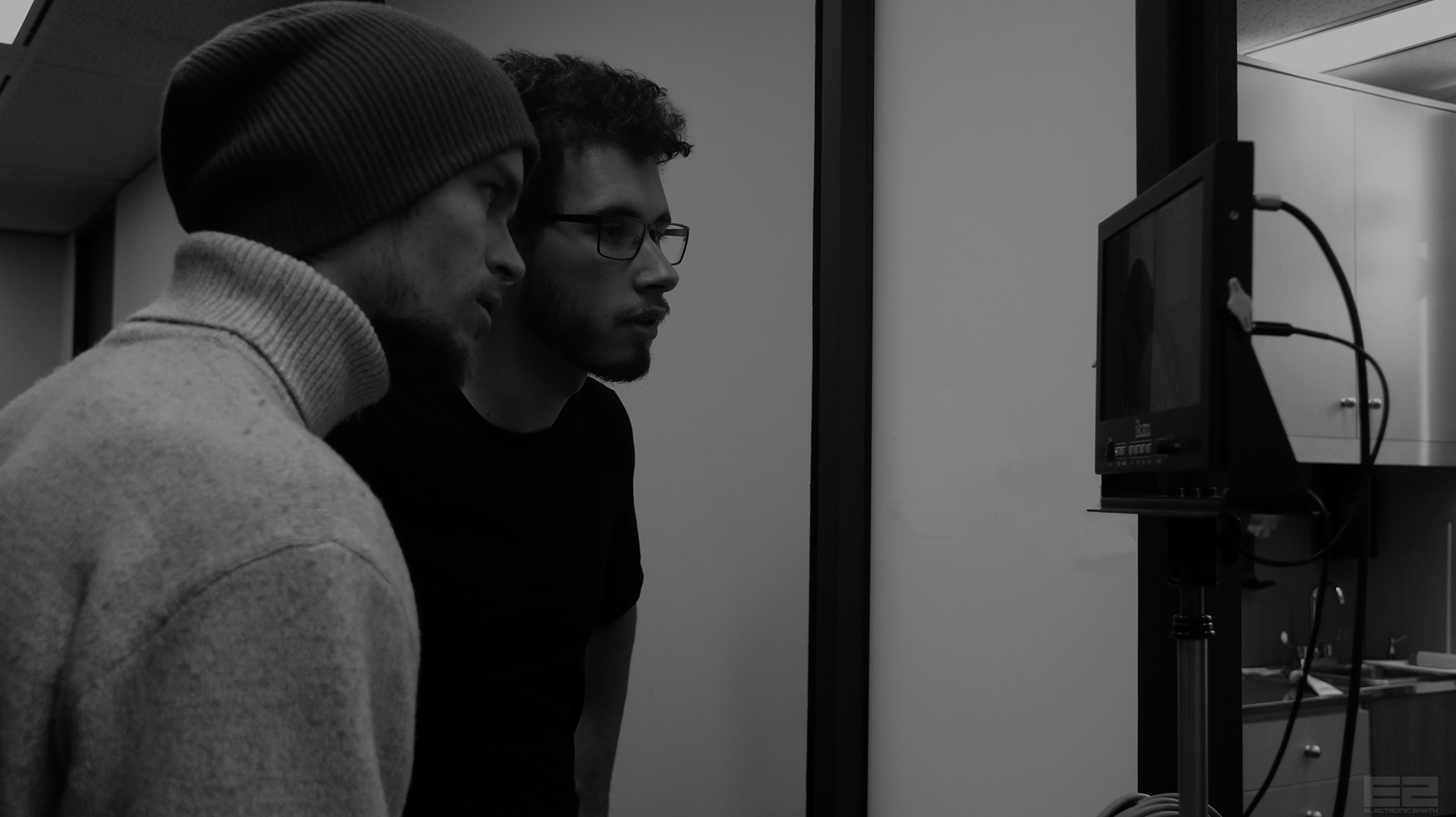
Artem Mykhailetskyi (Artem):
Before working on a pitch package, I knew I had to find a story/script that I would be passionate about. Since I’m not a writer, the idea of getting someone on board became really obvious. Enter Maxine (laughs).
After her and I started talking we quickly realized that there’s a project that she’s been working on for quite some time and she was very kind in letting me read it. Saying that it was “right up my alley” would be an understatement, sci-fi/thriller is my jam (laughs).
I, immediately connected with the world and the main character, Aly. After that, it was just the matter of making the story work within our limitations.
Sean Young (Sean):
I’d been off on other projects at the time, I remember Artem approaching me with this story idea and my wheelhouse is really sci-fi oriented so immediately considered it. After reading through what Artem presented on Maxine’s behalf and a lengthy conversation about his first time in the director chair I couldn’t say no.
E2:
So with you (Maxine and Artem) now collaborating as a creator/writer and director team – what brought you to deciding to entrust the project to Sean as producer?
Sean:
Oh great, bring me in and put them on the spot! (laughs)
Maxine:
Rgiht?! I had collaborated with Sean on some other projects prior and I knew Sean was very professional – I didn’t realize until we were beginning pre production that Sean was INCREDIBLY professional, like he had a background in law studies and that was very helpful especially in terms of how we made agreements and documents determining ownership. It was really helpful having him as part of the project because I didn’t know a lot of producers at the time who brought with them such organization to the projects that they produced. So it was really a blessing having him work with us.
Artem:
I agree, It’s always extremely important to attach the right Producer to a project. So when it was time to choose ours – the first person that I thought of immediately was Sean Young. Maxine liked that idea right away and it wasn’t too long till Sean agreed to do it. We selected Sean for his skills as a Producer and as a creative, what he brings to the table is hard to overlook.
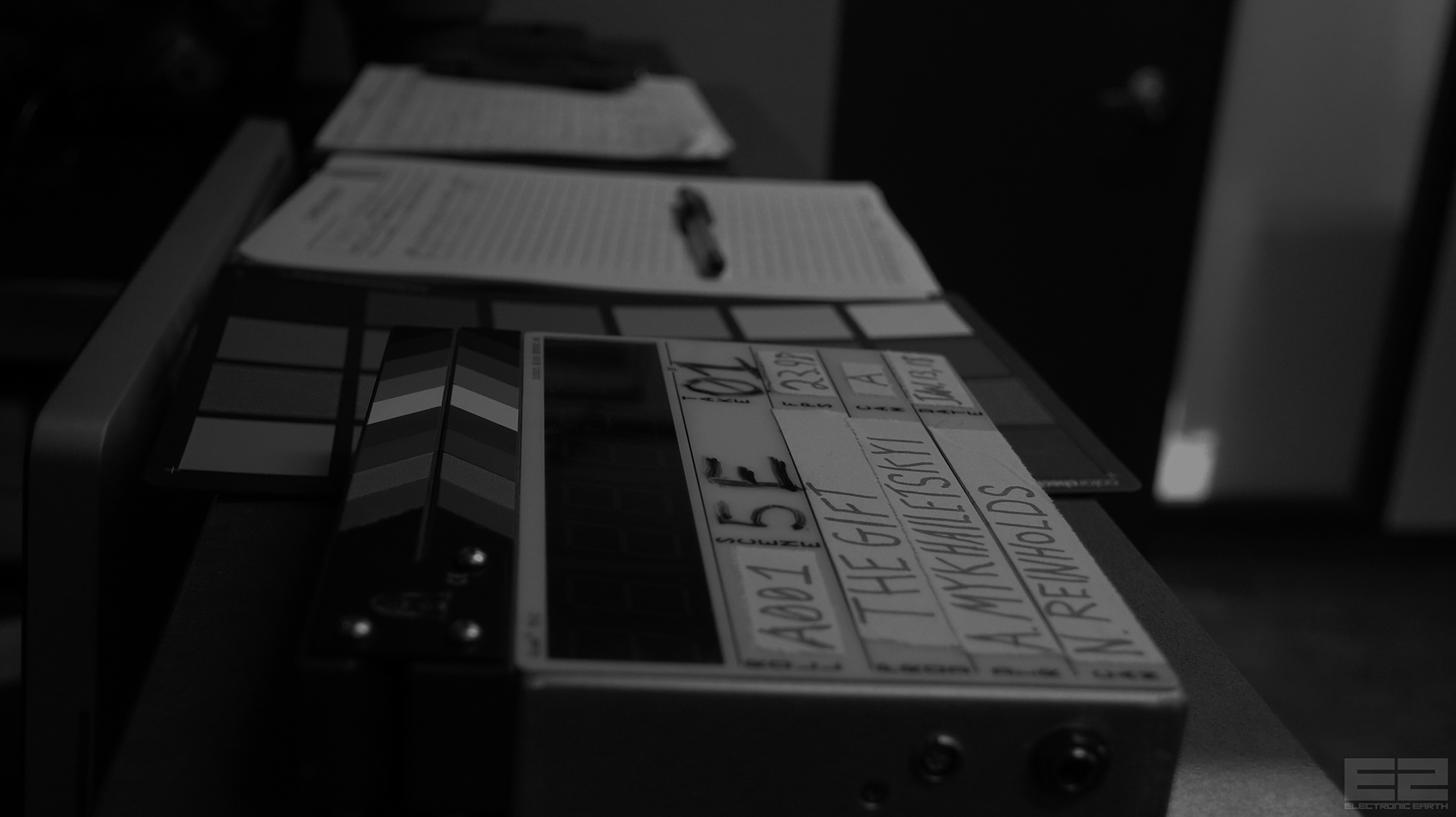
E2:
Oh yah – speaking of casting – maybe just a few comments on what that was like for you – your first casting experience
Maxine:
Yeah sure. It was really fun. I really do enjoy casting sessions especially for parts that I’ve written. I love interacting with actors and I love initially seeing my characters brought to life. And often, if they’re good enough, actors will bring their own ideas and interpretations to characters when they come to casting so it’s just a lot of fun seeing their ideas come to life as well as my own. I’ve done other casting sessions since then but that first time really informed me how they worked. Sean made us take down very specific notes for each actor and now I’m always using that technique whenever I do other casting sessions.
Sean:
it’s a smart way to do things – better to not only rely on the casting tapes and see some personal perspective in my opinion.
Artem:
I really enjoyed the casting process. I had a chance to see a lot of talented actors while trying to figure out who fits the project the best. Sean was helping us in that process since that was my first time being a part of a casting session as a Director.
E2:
That’s always extremely helpful in any producer. Regardless of organization and planning we heard that there was a major hiccup that occurred during your filming days – can you share any of that occurrence?
Maxine:
Yeah this was a great example of the best laid plans going awry. We planned to shoot on a weekend in January and of course leading up to the shoot we had like 3 weeks of mild weather, it was perfect. Then of course the weekend comes along and we had one of the worst ice storms of the year hit the city very hard.
Of course this had to happen on the one night of the shoot we were planning to shoot outdoors. Ultimately, it was hazardous filming conditions; it was cold, windy, uncomfortable and slippery. So we decided it was best to bring the 3 of us together and we completely overhauled the script – we cut out the outdoor scene and we re purposed it all to be shot indoors. In the end it worked out pretty well and it was good that we did because the second day of shooting was a very cold day in the city too, like -30 degrees Celsius if I recall correctly. So we learned a few things during this shoot and I think for me the most important lesson was: never plan an outdoor shoot in January in Canada – unless you’re in Vancouver.
Artem:
That’s so true that no matter how much you can prepare and plan, things can happen that are outside your control. For us it was the weather – the day was starting out warm and it looked like we would be able to film our first and only outdoor scene. As the day progressed it just became more and more obvious that it would be near impossible to film in those conditions. Even though we showed up at the location with tents, heaters and warm cars, a lot of snow and extremely cold weather gave us no other choice but to call it a day and make changes to the script so that we could still tell the story.
Cancelling was something that I wouldn’t wanna experience again as a director. You go through every possible option to see if you can make it before the rewrite needs to happen. On one side, your team and you are all freezing, on the other side, we all want to tell this story. There is also a revolving code of, ‘there are no problems, only solutions’ on a film set – we proceeded to the solution.
Sean:
Ultimately, we had to cancel a day of shooting to protect what matters most, our friends and colleagues. It was a tough call to have to make just starting out in the world of film with a fresh creator and director team but as disappointed as they were it was the only decision that could have been made – regardless of the cost, that’s just good business. I’m proud of all of our stakeholders for agreeing with that.
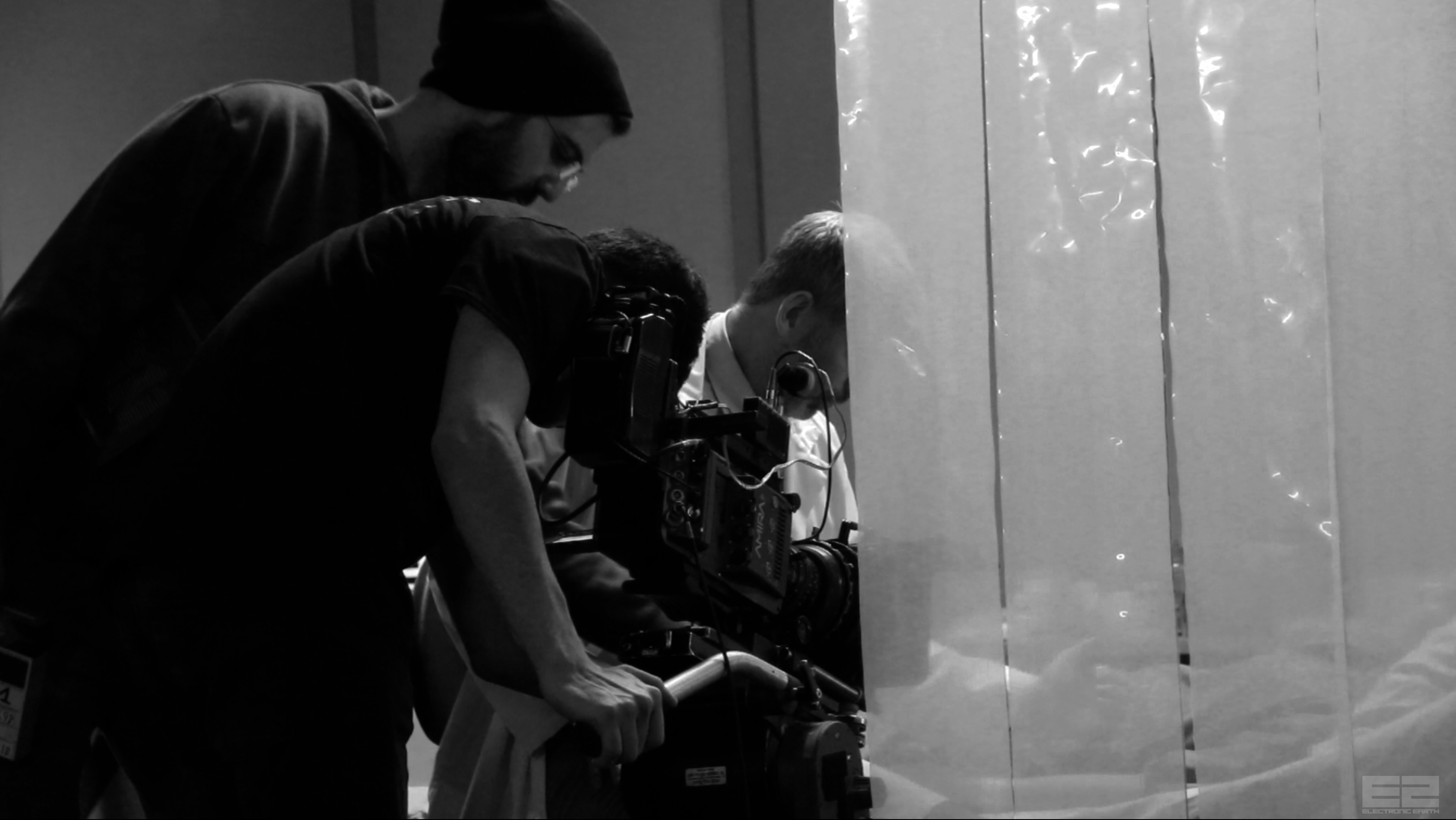
E2:
Complications aside, what was the dynamic like working within your trio?
Maxine:
It was a good dynamic for me, but I was just the writer on set working continuity/script supervising. I think there was more interaction between Artem and Sean when it came to the shoot datys. It was also Artem’s first time directing but it was purely professional – they’ve remained very good friends and colleagues afterward and continue to work on other major projects.
Artem:
Working with Maxine was very easy, she was very open to feedback/suggestions and making the necessary changes to the script as we were polishing it up to fit our circumstances. While we were on set she was making valuable suggestions and offered advice on the story when we needed it.
Sean and I had already worked together a few times so we already had our own system of communication. The only difference this time was we were working in the Director to Producer capacity. Which added other aspects of making a film that I wasn’t usually involved in. Sean offered support and guidance when needed, to help me adjust to the new role.
The three of us gelled really well, we were efficient in our communication while having a good time making the film. Working with them was absolutely awesome and I’d do it again in a heartbeat.
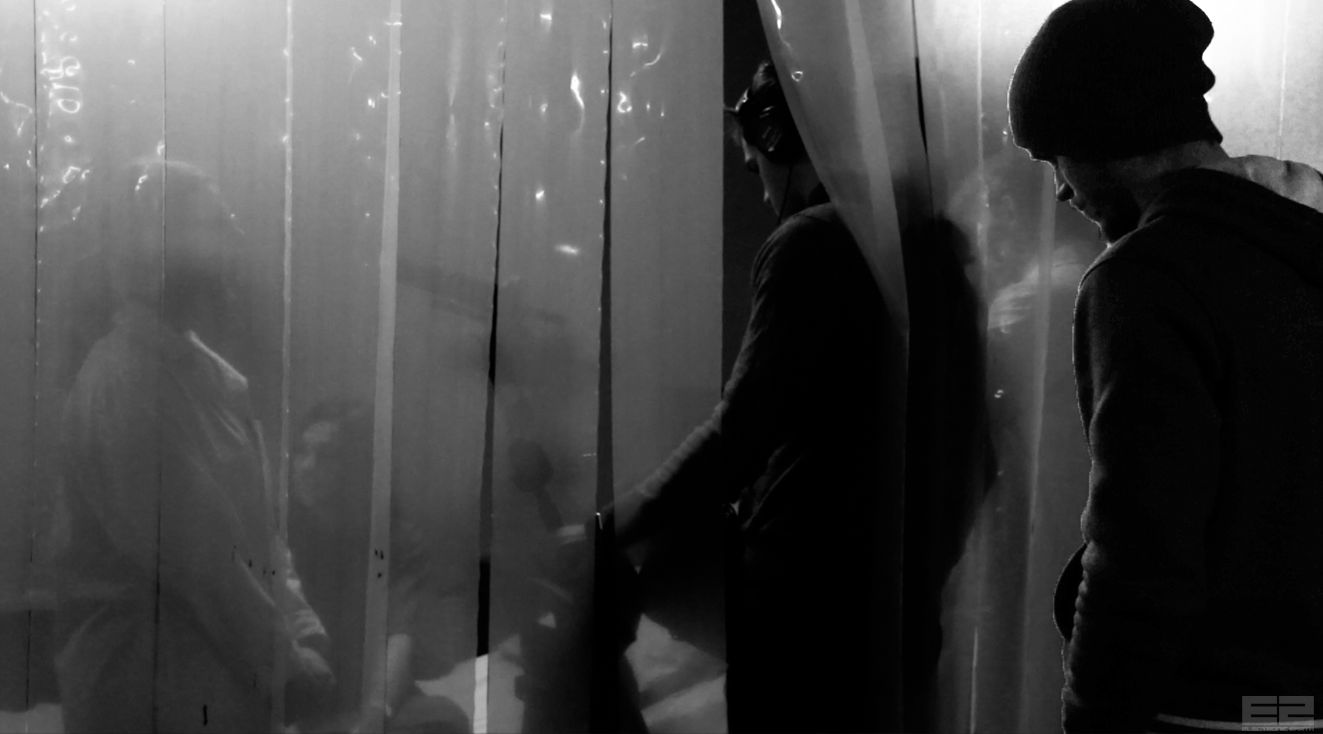
Sean:
I’m so flattered right now – I uh, both Maxine & Artem pulled off really great work in this project with the complications that came at us – developing a story to have it literally torn apart by the weather and locking a location only mere weeks away from an already re-planned shooting schedule.
I tip my hat to both of them and am humbled by the commitment and effort – even in the face of adversity.
E2:
It really sounds like that the team complimented each others skill sets perfectly if you could pull off losing an entire day of filming on only a 3 day shoot and rework the script to the point of remaining workable without postponing (again) – it really shows problem-solving and passion for your work. What was the experience like for you, when you finally got to see all of the hard work and pieces of yourself played for an audience the first time?
Maxine:
Honestly it was tough. It was the first time for me seeing one of my works actually being shown to a mass audience. And I think when you’re an actor, like, you may be nervous when you’re on screen but when you’re a writer or director you could be nervous for everything being shown. The other problem was that, as a proof of concept, I wasn’t sure how accessible it was as a short film to an audience that had no idea about the TV series concept. Instead I saw it more as something that we’d send along to studios and production companies and agents/managers in order to show them conceptually how the TV series would look like. I didn’t think it evoked enough of a visceral emotional reaction from an audience that had no idea about what the proof of concept was portraying. So in the end, I don’t know. It was nice to see something I had done on a few theatre screens) and it was great to show to the other writers that I work with. But I don’t know if it really left enough of an impression on audience members who went into it with no expectations.
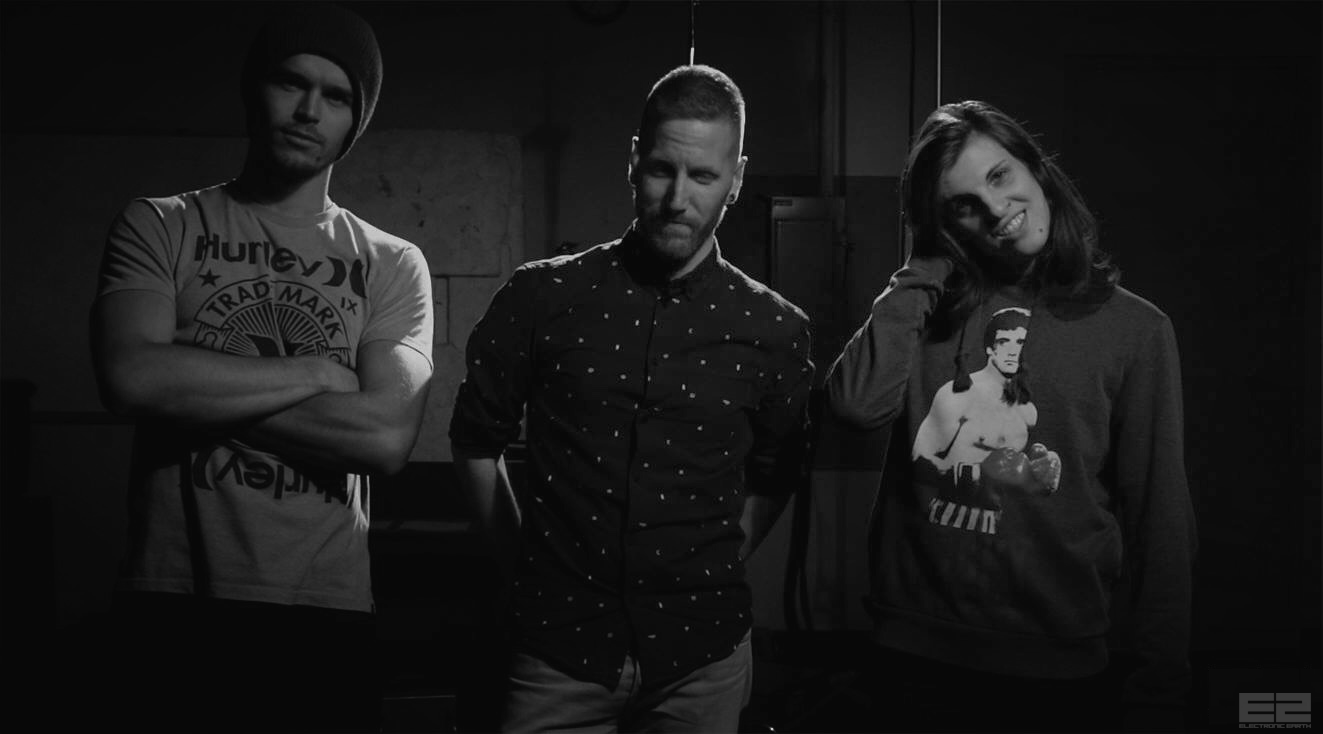
Artem:
When the film was shown to an audience for the first, I watched it with one eye closed while slowly retracting into my own shell (laughs).
What I mean by that is, it was a unique experience that I haven’t felt before. You work so hard, you go through a lot of emotions while making it from development to post-production and on top of that you have to be absolutely vulnerable and “naked” in front a group of people who you mostly don’t even know. But that’s what is going to make you into a better filmmaker and grow thicker skin to be able to receive all kinds of feedback about your work.
The audience’s reaction to the film was mostly positive and people cheered/clapped at the end, but they were being too nice haha. While experiencing that I felt that I can do much better and as a director I have a long way to go, so much to learn. But I am very excited about what the future holds and learning as much as I can as a filmmaker.
Sean:
Everyone on this team learned an awful lot, it’s the same from every shoot – that’s one of the beautiful things about this industry, there is no template for it, you have to make a custom mould every time and hope people will like it.
The audience it’s seen so far has enjoyed it, let’s see what the rest have to say now.
E2:
That’s fair, do you have any plans with the concept from this point? (Keep in mind that the first time readers will know the film is released is with this interview)
Maxine:
It’s on the backburner right now but I do still love the concept as a TV series. I’m just afraid I don’t have the writing ability to expand the concept and I know for a fact that no studio or production company would let me show run a TV series with no experience under my belt. So my plan is to work up my filmography and at some point pitch this to networks so that it can become the TV series that I always had in mind for it.
Artem:
I’m in agreement with Maxine, but I would like to say one thing that I’ll remember the most is all of the hard work that everyone put in, their dedication and sacrifices made this project what it is today. When we were taking our crew picture at the end of the shoot, I was sitting there with everyone and I couldn’t believe that all of these people came out to make our vision into reality – I will not forget that and I’ll always be grateful for it – so of course I’d love to see the project advance as well.
E2:
We’ll keep our fingers crossed for you guys.
Sean:
We’ll just have to see what people think of the concept…
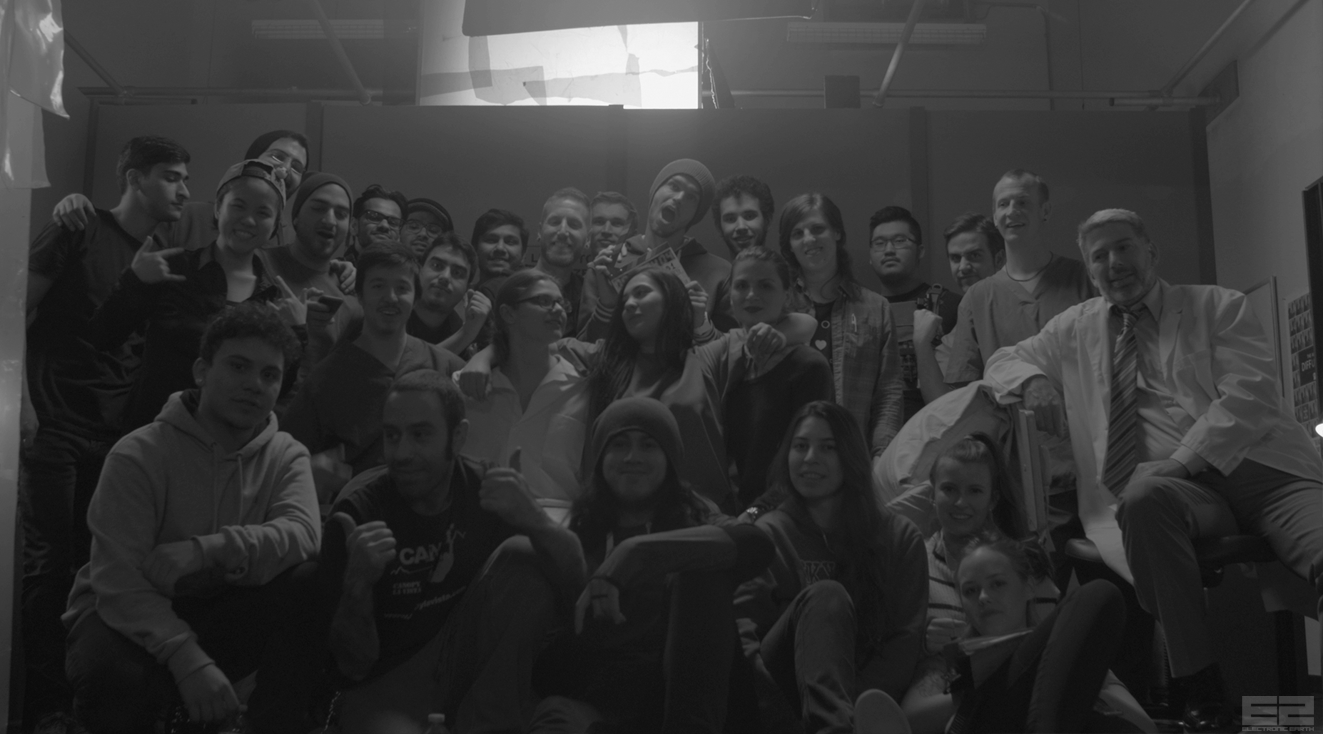
More info on The Liminal can be found by clicking here.
More info on Maxine Clement can be found by clicking here.
More info on Artem Mykhailetskyi can be found by clicking here.
More info on Sean Young and Electronic Earth can be found by clicking here.
Share this Post